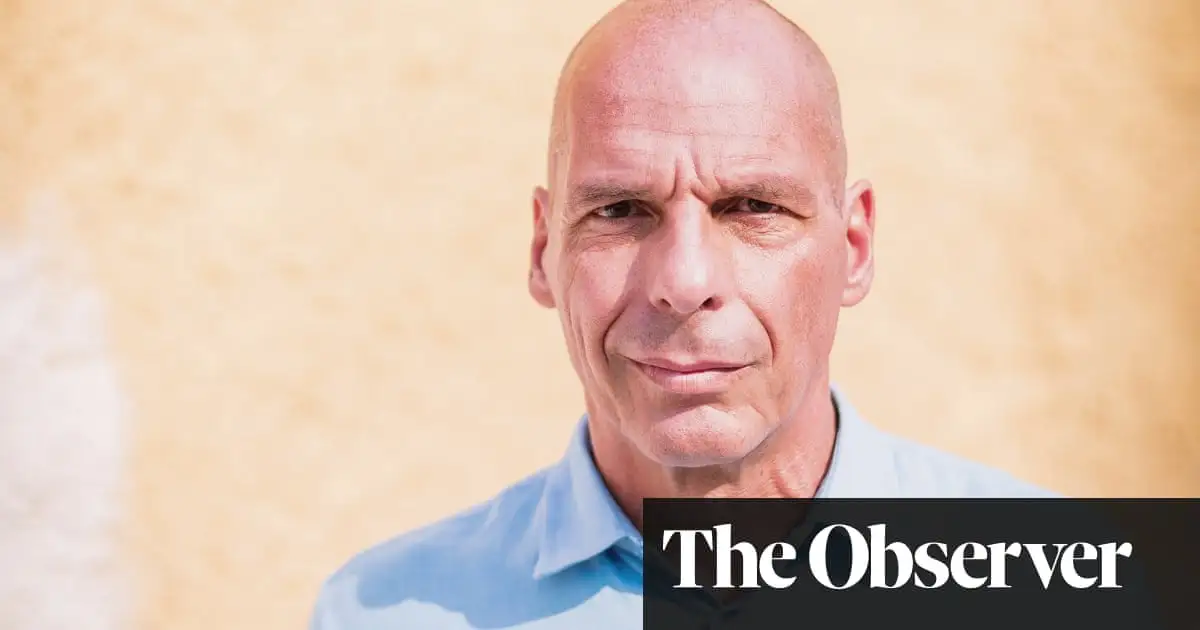- 27 Posts
- 21 Comments

 31·16 days ago
31·16 days ago“Poor Americans don’t deserve electricity because rich Americans are privileged and wasteful” is certainly one of the takes of all time.

 25·17 days ago
25·17 days agoYou spent a lot of paragraphs on a “dumb” argument. Sounds like, despite your insistence it doesn’t matter, it really does matter to you.
USians gonna US, I guess.

 79·17 days ago
79·17 days agoWhen you think about it, it’s kind of offensive to call ourselves (US residents) “Americans” as if in all of North and South America we’re the only country that matters.

 161·28 days ago
161·28 days agoBut if you’re selling energy bsck to the grid, you’re using the infrastructure and they have to pay you for running your meter backwards. Even paying you a reduced rate for the energy you produce is a losing proposition for them.
It’s a bit worse than that, even. If there are too many people sending too much energy back to the grid, the grid can get overcharged and blow up. So energy companies have to dump the excess power somewhere to keep the grid stable.
There are a lot of potential solutions to this problem. (Before anyone says Bitcoin fixes this, no it doesn’t.) unfortunately, energy companies are currently taking the laziest and least efficient solution - pay business owners to run their factories uselessly in order to drain excess power from the grid, and pass the cost on to consumers.

 6·3 months ago
6·3 months agoSame as when one of the big name hosting companies takes a site down. You hope it’s archived, and if it was important enough to you, hopefully you saved it to your personal server.
What you’re describing is a major benefit of federation. Any site can be taken down. But when a federated server goes down it’s because the site owner exercised their control over their own data. If Google or Amazon takes a site down, you lose your data, but they keep copies to use however they want.

 4·5 months ago
4·5 months agodeleted by creator

 6·6 months ago
6·6 months agoLow Tech Magazine has a lot of suggestions for precisely this.

 19·8 months ago
19·8 months agoOP, you made a mistake in the title. This doesn’t scale down to suitcase size. It scales up to suitcase size. Which makes sense - water circulation powered by passive solar heating can only go so far.
And if you notice, the device is fueled by sunlight - so it needs a 3x3 square of shallow water for each “suitcase”. The devices can’t stack on top of one another. If you start putting these down along the coast you quickly run out of space - and the coastal habitat where these devices would sit is extremely valuable to both humans and animals, and if you put them too close together you start having problems with salt runoff accumulating.
This could supply fresh water for poor coastal villages or off grid homesteads. It doesn’t scale to cities.

 10·8 months ago
10·8 months ago200 liters is with bathing, cooking, toilets, and all the other conveniences of modern life in industrialized Western society.
This device is aimed at small scale off grid household use - people who don’t have public water or sewer and naturally use much less.

 14·11 months ago
14·11 months agoGot to take this in context.
In the United States, the “traditional distinction between left and right” is between neoliberals who like abortion and neoliberals who hate abortion, and people who talk about overcoming that “traditional distinction” are typically arguing for some new form of right wing cryptofascism, so it’s fair to be suspicious.
But what they’re talking about here is the traditional distinction between left and right in Europe - a distinction based on support for capitalism versus opposition to capitalism - and how that might not be an effective way to understand society if the economic policies supported by the right are no longer capitalist.

 493·11 months ago
493·11 months agoI’d argue that planned obsolescence is about designing something to break early and shorten its useful life, while graceful degradation is about designing things that are resilient, that work even after being broken, to give them as long a useful life as possible.
In that vein, the flashlight is a useful analogy even if you could argue it’s not an exact example - it works when it power source is at full, it works when it has fewer power sources, it works when it has less energetic power sources, it just tones down its output to match the power it has available.
Apple, on the other hand, went out and said “if you don’t buy a new phone we’re going to make your old phone run slower”. I think the battery life was just an excuse - did Apple really think its customers would rather have a slower phone than a phone with shorter battery life? Sounds ridiculous.
If you want a better example of graceful degradation in technology, think about solar panels. Solar panels gradually become less efficient with age - a 20-year-old solar panel is working at about 80% of its original efficiency. And for high efficiency needs, like powering a house where you have limited space to put solar panels, 80% might not be good enough anymore. But a solar panel that works at 80% is totally functional for other uses where less power is needed, so you can repurpose it and swap it out. And as long as somebody doesn’t drop a rock on the panel and break it, it can keep going for decades more.
Less efficient panels can be repurposed for systems that need less power. Older computers can get new operating systems and be repurposed for less demanding uses. Some things can be repaired indefinitely, and some can’t, but even things that gradually and inevitably decline in efficiency can be repurposed instead of being discarded. That’s the sort of resilient design we need for a sustainable future.

 64·1 year ago
64·1 year agoTrouble is “don’t use electricity after dark” is still unimaginable for most Americans.
That’s one of the “benefits” of the steady crumbling of the world’s infrastructure. Most of the world is used to routine scheduled power outages due to lack of resources and the US is soon to join that club. When people are used to not having electricity on demand and batteries get more expensive as we run out of lithium and rare earths, direct solar will be less of a hard sell.

 22·1 year ago
22·1 year agoI mean, my assumption is “people will keep doing what they’re doing now”, and, barring a global eco-religious revival, I don’t really think that’s an unreasonable assumption.

 21·1 year ago
21·1 year agoYeah, why don’t we mess with our climate a second time instead of pursuing real solutions like renewable energy, degrowth, and decarbonization?
Because it’s too late for those options to work.
I agree this particular geoengineering idea isn’t sufficiently thought out yet. But the problem is: the world won’t stop polluting, won’t stop growing its economies, won’t stop expanding. Even if the US and Europe cut their emissions and slow down, the developing world, India and China and Nigeria and Kenya, and so on, won’t. They see the standard of living in the West, they think their people deserve to live just as well, and they see we got there through unchecked resource consumption within a capitalist economic system, and how the hell do we have the right to tell those countries to stay poor for the sake of the environment when we got rich by fucking the environment?
So the only things that will save the world are globally organized, probably UN coordinated, technological solutions to mitigate the damage done by unchecked capitalist expansion, because we can’t stop capitalism.
I support geoengineering because, frankly, it’s the only hope left.

 53·1 year ago
53·1 year agoI disagree. I think what distinguishes solarpunk from anarcho-primitivism and anarcho-agrarianism is the belief that more advanced technology can help humanity to regain harmony with the rest of the natural world. Solar panels replacing coal burning power plants is one example. So is geoengineering, and CO2 capture, and an army of seagoing drones scooping plastic - don’t we have not just a need but a duty to use our technology to cure some of the wounds our technology has inflicted?

 9·1 year ago
9·1 year ago… my friend, my brother, sister, or nonbinary mister, that take is utter cringe.
Everything is political. Everything.
You can’t have Star Trek without politics, because Star Trek has been an allegorical morality tale about social justice from the first episode where a black woman (and a Russian man - remember the Cold War context) were shown as equal to their white male crewmates, and social justice is political.
You can’t have Linux without politics, because Linux was created as a fuck you to copyright and capitalist monopoly power, and capitalism is political.
People who say they “hate politics” really just hate disagreement - they’re happy to talk about political positions and themes as long as no one argues against their positions and themes.
People say they hate politics because they love, or at least accept, the status quo.
And there’s no political position more dangerous than that.

 6·1 year ago
6·1 year agoSounds like a job for web3 blockchain microtransactions! 😆

 74·1 year ago
74·1 year agoIronically, back then people my age were warning kids “don’t trust anyone or anything you read on the Internet, don’t give out any personal information to anyone”.
Fast forward 25 years and my peers are quoting 8chan shitposts as fact and “investing” their life savings on crypto websites they heard about on Discord.

 4·1 year ago
4·1 year agoAbsolutely, they can be. I’m a big believer that solarpunk means appropriate technology, not just high technology. In some places electric power and solar panels are the most appropriate, sustainable, environmentally sound, and decentralized way to make power. In other cases it might be hydro. Maybe a million solar panels on the roofs of a million houses is the best way to power a town; maybe, when all the equities are taken into consideration, building a single dam and hydroelectric power plant has less impact on the environment than manufacturing and installing a million solar panels. It has to be case by case.
I don’t know much about old school water wheels, but I can tell you that changing an environment is not the same as damaging it. Beavers turn streams into ponds and transform environments far more dramatically then dropping a water wheel into a river does, and they’re still part of nature. You are part of nature, and as a tool using, home constructing animal, you have a right to use your natural abilities to modify your environment. And you have a duty, of course, to use your brain and think about the impact your modifications will have on your specific environment.
I can also tell you that when you talk about using kinetic energy directly from a natural source, you have to factor in transportation and storage. Taking the example of a water wheel used to mill grain: if you have to ship grain to the mill and ship flour out again, at what distance from the mill is it no longer efficient to transport? How much storage do you need for grain and flour on site? What happens when there’s a drought - does the grain just sit there in storage? And what happens when there’s a flood - how long can the grain be stored at the riverbank before it’s damaged by moisture? And what do you do when there’s no grain - the power produced by the water wheel can’t be moved, so you have to repurpose it or it goes to waste, right?
A water wheel that provides kinetic energy is centralized power, just as much as a coal-fired power plant is - just instead of using a network of wires to transmit power to other locations, you have to use a network of roads to transmit materials to and from the location where energy is produced. But while a power plant can transmit electricity hundreds of miles away so location is not an issue, the water wheel’s energy can only be accessed in a very small physical location, which means it can only really do one thing at a time and people have to line up around the block to mill their grain like they did with windmills on windy days in the 1600s.
Or think about the sunshine death ray in your diagram - if I’m reading it right, one person can use that death ray at a time. If the sun is providing more energy than the user needs, the excess is wasted. If the sun is providing less energy, the user can’t do what they want to do. And you can’t split off the power to share it with multiple users without building new death rays, which drastically limits the production efficiency of the makerspace. The studio you’re designing is for one, or a handful, of people doing work in a deliberately inefficient fashion presumably for artistic or aesthetic or ideological reasons.
And I’m not saying that’s necessarily bad or wrong. There’s room in solarpunk for the joy of inefficiency and of doing things in completely analog fashion.
There’s something sacred in taking the power of the universe into your own hands and manipulating it directly in an act of glorious creation.
But we can’t run a society on water wheels anymore. Solarpunk demands sustainability, and a sustainable society needs to use its resources efficiently, and water wheels really aren’t an efficient use of rivers or river banks.
(I appreciate simple, old-fashioned, analog technology, for both practical and ethical reasons. But the big reason solarpunk was dubbed solarpunk is that solar panels are practically miracle technology for sustainability and decentralization. They’re made out of silicon, they last for decades, they’re modular, they’re portable, they require no supporting infrastructure whatsoever, and they produce free energy anywhere and everywhere the sun shines.)














There’s a difference between “renewable and abundant” and “infinite”.
It would take the resources of five Earths for everyone on the planet to live like an American. More solar panels aren’t going to change that.
What will bring sustainability is Americans, and other people living wealthy Western lifestyles, learning to live comfortably with fewer resources. You can be comfortable without eating beef for dinner every night. You can be comfortable living in a resource-efficient apartment instead of a sprawling subdivision. You can be comfortable taking public transit instead of owning a car, or teleworking instead of commuting daily, or having a low flow shower in your home instead of a tub.
Home ownership, car ownership, a meat heavy diet, fast fashion, disposable technology, plastic everything, are entitlements that you receive as a benefit of living in the imperial core. These are not necessities of life. You just think they are because patriotic and corporate propaganda has convinced you of it to make you a collaborator in its colonial extraction of the world’s resources.
A sustainable comfortable future doesn’t just mean improving the standard of living of the poorest in the world. It means the world’s wealthiest need to check their entitlement and learn the difference between comfort and luxury.